Explore Year 6. Session 6. Week 3.
For more from Session 6 Week 3, click here: Explore Session 6, Week 3 photos & videos
For more from Session 6 Week 3, click here: Explore Session 6, Week 3 photos & videos
For more from Session 6 Week 3, click here: Explore Session 6, Week 3 photos & videos
For more from Session 6 Week 2, click here: Explore Session 6, Week 2 photos & videos
For more from Session 6 Week 1, click here: Explore Session 6, Week 1 photos & videos
For more from Session 5 Week 6, click here: Explore Session 5, Week 6 photos & videos
For more from Session 5 Week 4, click here: Explore Session 5, Week 4 photos & videos
For more from Session 5 Week 3, click here: Explore Session 5, Week 3 photos & videos
This week in the studio was packed with exploration, deep thinking, and hands-on learning. From honing survival skills in Quest, to finding flow in Art, and diving into meaningful discussions, every learner had an opportunity to grow in new ways.
This week’s Survivor Quest focused on one of the most essential survival skills—water! Learners in Explore researched the many different parts of the water cycle, then built a model to illustrate their findings. To put their knowledge into practice, they constructed solar stills to collect water through condensation and used sand, gravel, and coffee filters to purify murky water collected from Shoal Creek last week. Once they completed their Quest challenges, they switched gears to another essential survival skill—fire-making! They practiced using flint and steel, magnifying glasses, and even friction with sticks to create fire.
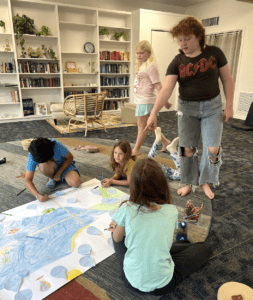
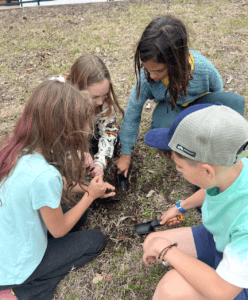
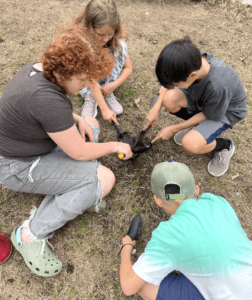
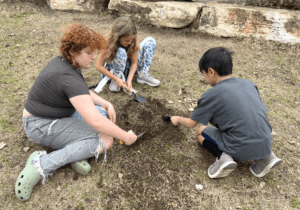
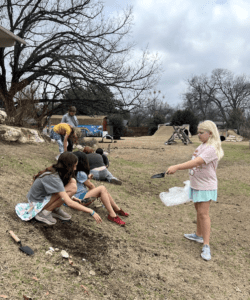
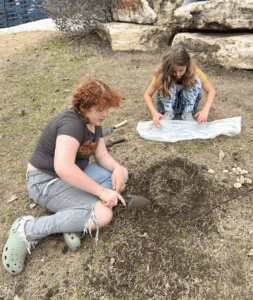
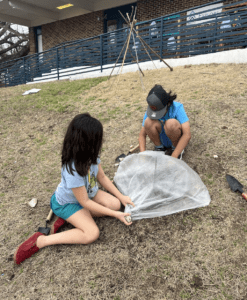
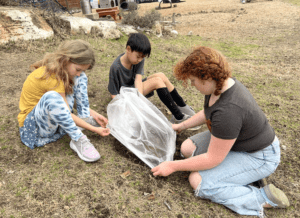
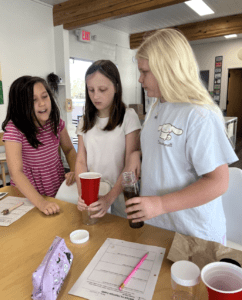
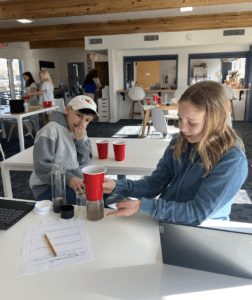
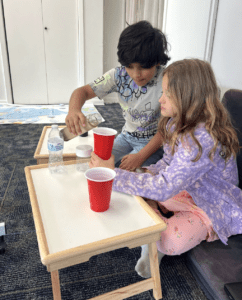
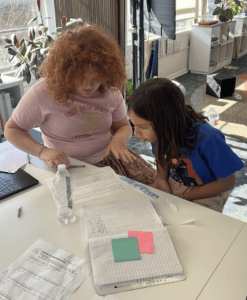
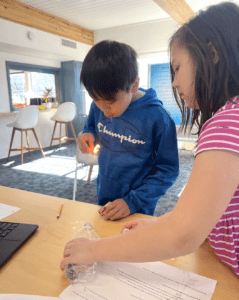
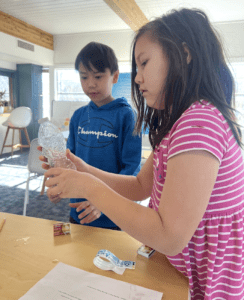
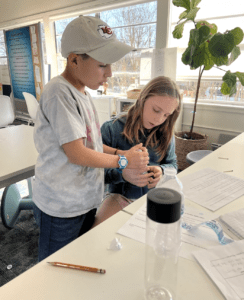
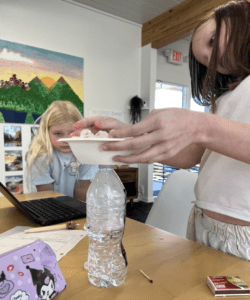
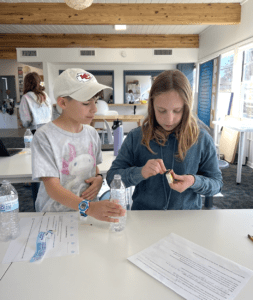
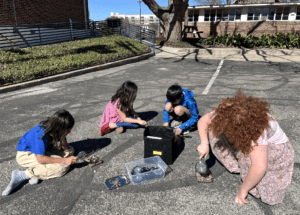
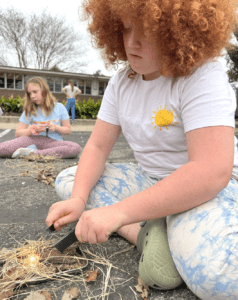
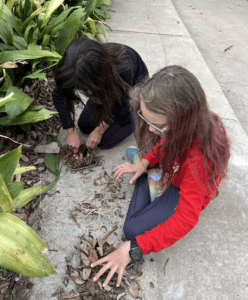
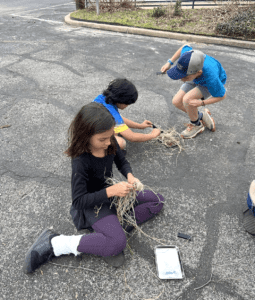
This week in art, Explorers took their creativity outdoors with a yarn bombing project! They gathered sticks from around campus and wrapped them in bright-colored yarn, transforming them into vibrant sculptures and mobiles.
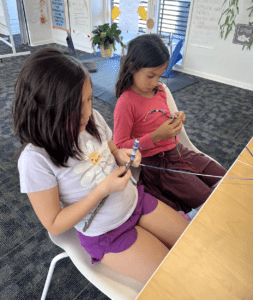
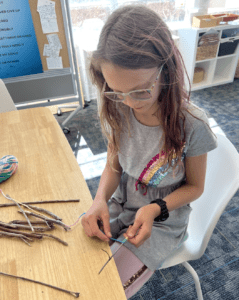
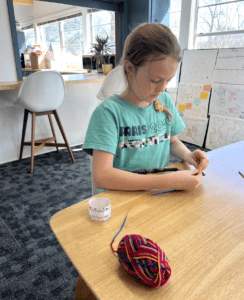
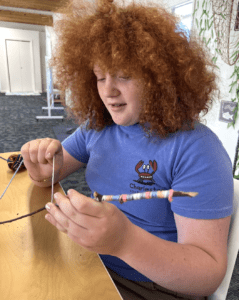
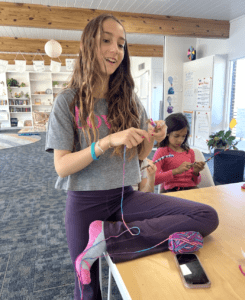
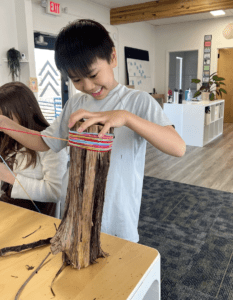
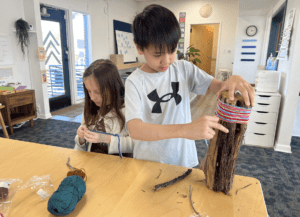
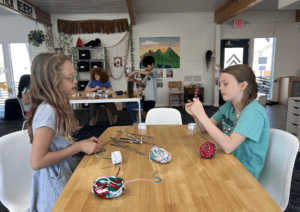
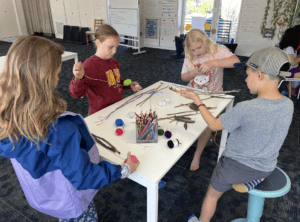
In PD, Explorers worked on improving their control of the basketball while dribbling. They pushed themselves to their limits, running extra laps and creating their own dribbling challenges, all while cheering each other on.
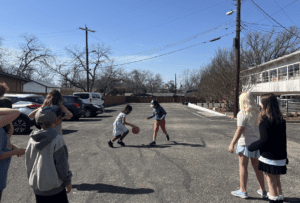
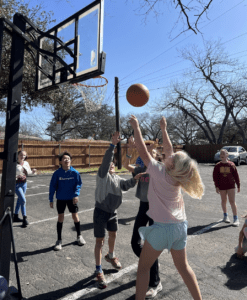
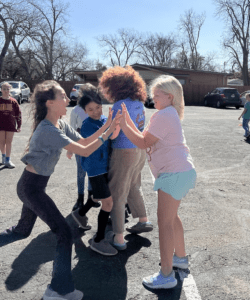
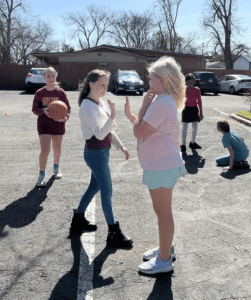
For more from Session 5 Week 2, click here: Explore Session 5, Week 2 photos & videos
To wrap up the week, the Explorers took a trip to Shoal Creek, but this wasn’t just any outdoor adventure. They collected water from the creek, preparing for next week’s challenge in Survivor Quest: water filtration. Soon, they’ll put their engineering and problem-solving skills to work, figuring out how to turn murky creek water into something safe to drink.
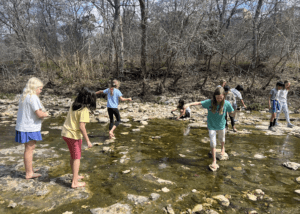
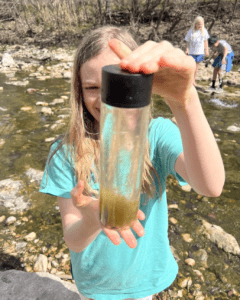
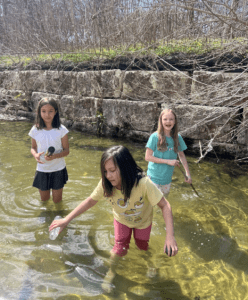
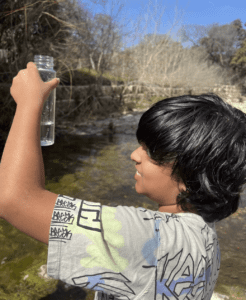
With every challenge—whether in survival, art, or athletics—the Explorers continue to develop resilience, creativity, and teamwork. Next week promises new obstacles and discoveries, and we can’t wait to see what they accomplish!
For more from Session 5 Week 1, click here: Explore Session 5, Week 1 photos & videos
https://youtu.be/FlZIvJ77-g4?si=l47AxlEISQkMmytq